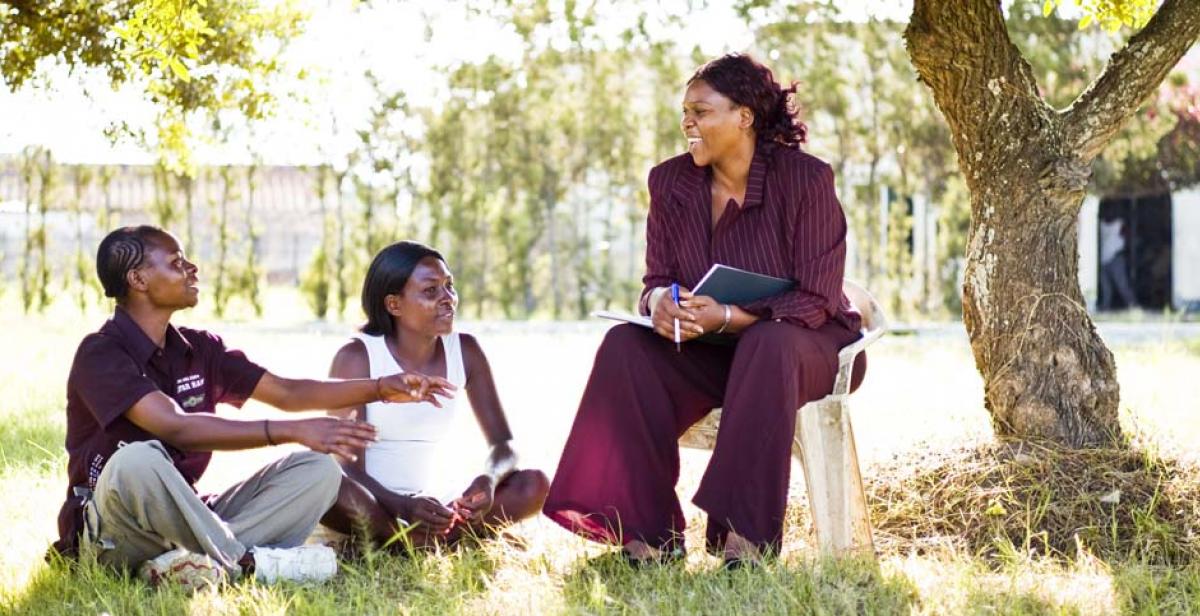In many countries, the expectation of young women to remain abstinent until marriage restricts them from access to information about protecting themselves from pregnancy or Sexually Transmitted Infections like HIV. Often, health systems don’t help them protect themselves from HIV and AIDS because of their social status as young women.
Deeply rooted social institutions based on a patriarchal worldview can cause gender discrimination. Cultural reasoning and conservative religious interpretations of sacred texts have been used to justify control over the lives of women and young girls.
What can be done at national policy level?
In spite of the misuse of religion by some religious leader, for many, faith is a source of strength, solace and learning. It is clear that religion plays an important role in shaping societal values and influencing principles, given its impact in shaping humanity. This puts religious leaders in a position of power, which can have positive or negative outcomes.
Faith directly influences societal attitudes and behaviour towards women. The UK Department for International Development (DFID) has already acknowledged this factor through their continuous engagement with Faith Based Organisations (FBOs). This helps governments better understand which interventions can promote gender equality and sexual and reproductive health. It also helps bring progressive faith leaders and governments together so they can work towards a more fair and just world together.
Partnerships between civil society and governments must be used to develop a strategic approach to bring these issues forward. This is especially true given the increasingly conservative landscape in many countries, shown in negotiations at the United Nations.
It is also important that governments and donors take a multi-sectoral approach to tackle root causes of gender discrimination. We need to ask them, for example, if there are any strategies in place which integrate different areas of work such as the specific situation of girls and young women, protection from HIV and AIDS, the role of weak governance structures (including institutions) and power of religious leaders.
We need to ask how we can question discriminative cultural and social norms to achieve a better world for women and girls, especially in terms of preventing HIV and AIDS.
Interventions against the spread of HIV and AIDS must be based on the understanding that adolescent girls and young women are not, as often proudly repeated these days, only leaders of tomorrow. They already live today and we must stand in solidarity with them regarding their rights and protection from harmful practices and infections.
What is the link between high level agreements on Sexual and Reproductive Health and HIV and Aids?
International development actors like DFID, other governments and donors design their programmes based on policies and evidence of what works for lifting vulnerable populations out of poverty. A key region is Sub-Saharan Africa, which is, despite progress in several key areas, still one of the poorest regions in the world.
Most fragile states are in Sub-Saharan Africa. The link between poverty and poor health is well established. It is not surprising that more than 60% of people living with HIV inhabit Sub-Saharan Africa and adolescent girls and young women count for one in four new infections. We must consider the link between poverty, health and gender.
In most developing countries, especially fragile states, it is clear that cultural practices, traditions and social norms hold the keys to understanding the roots of gender discrimination. Many ‘fragile states’ readily turn to traditional, religious and customary laws because of ineffective State institutions and weaknesses in State-building.
Adolescent girls often do not know how to protect themselves from HIV and AIDS because of their social status in society. It is often the case that adolescents have neither access to information or services due to the cultural and religious attitudes in many countries DFID and others are supporting.
At the same time, good strategies sometimes exist on paper, but are meaningless if rejected by powerful traditional or religious leaders. States with fragile governance structures and high rates of HIV and AIDS have a double burden: They need to strengthen their governance system and, at the same time, find applicable and enforceable solutions for bettering access to sexual and reproductive health rights for adolescent girls which are at risk of HIV and Aids.
A strong commitment of governments and donors to empower young girls and women through a human rights based approach by working with traditional and faith leaders, and a two-fold approach to fighting HIV and Aids, through focusing on strengthening the formal health sector and eliminate discriminatory social norms is needed.
Progressio will continue to lobby policy makers to ensure that Sexual and Reproductive Rights are at the heart of the next sustainable development goals, namely having relevant targets to achieve universal access to Sexual and Reproductive Health and Rights under the Health and the Gender Equality goal.
How Progressio stands alongside those affected by HIV and AIDS




